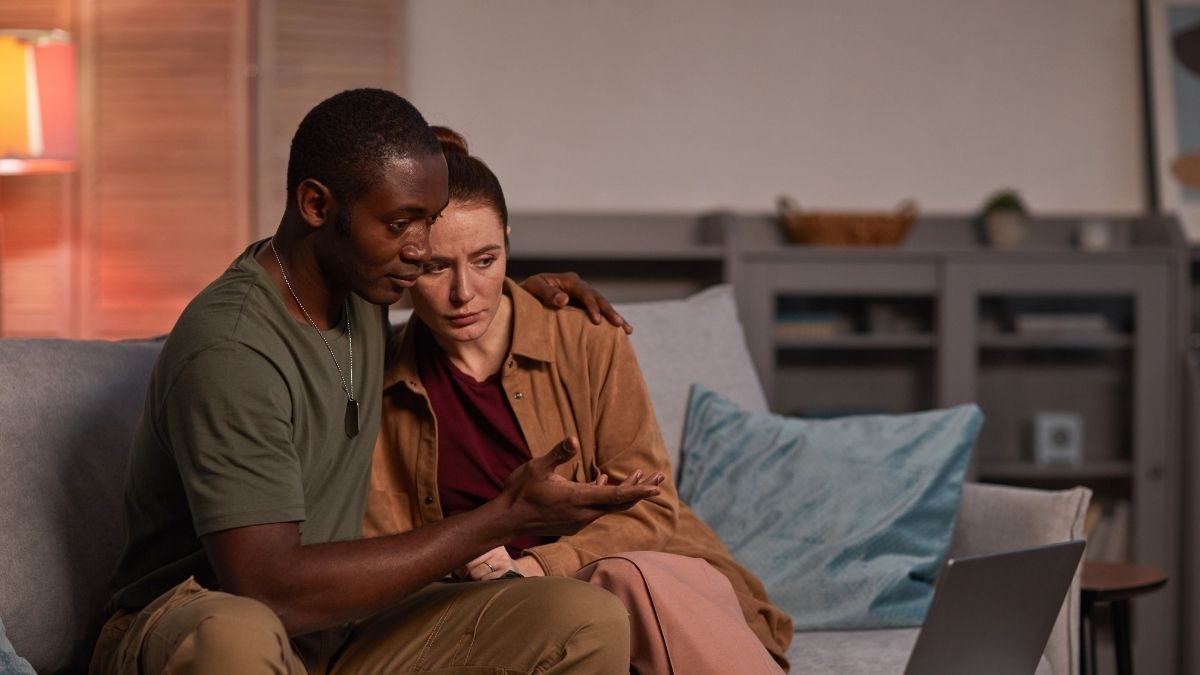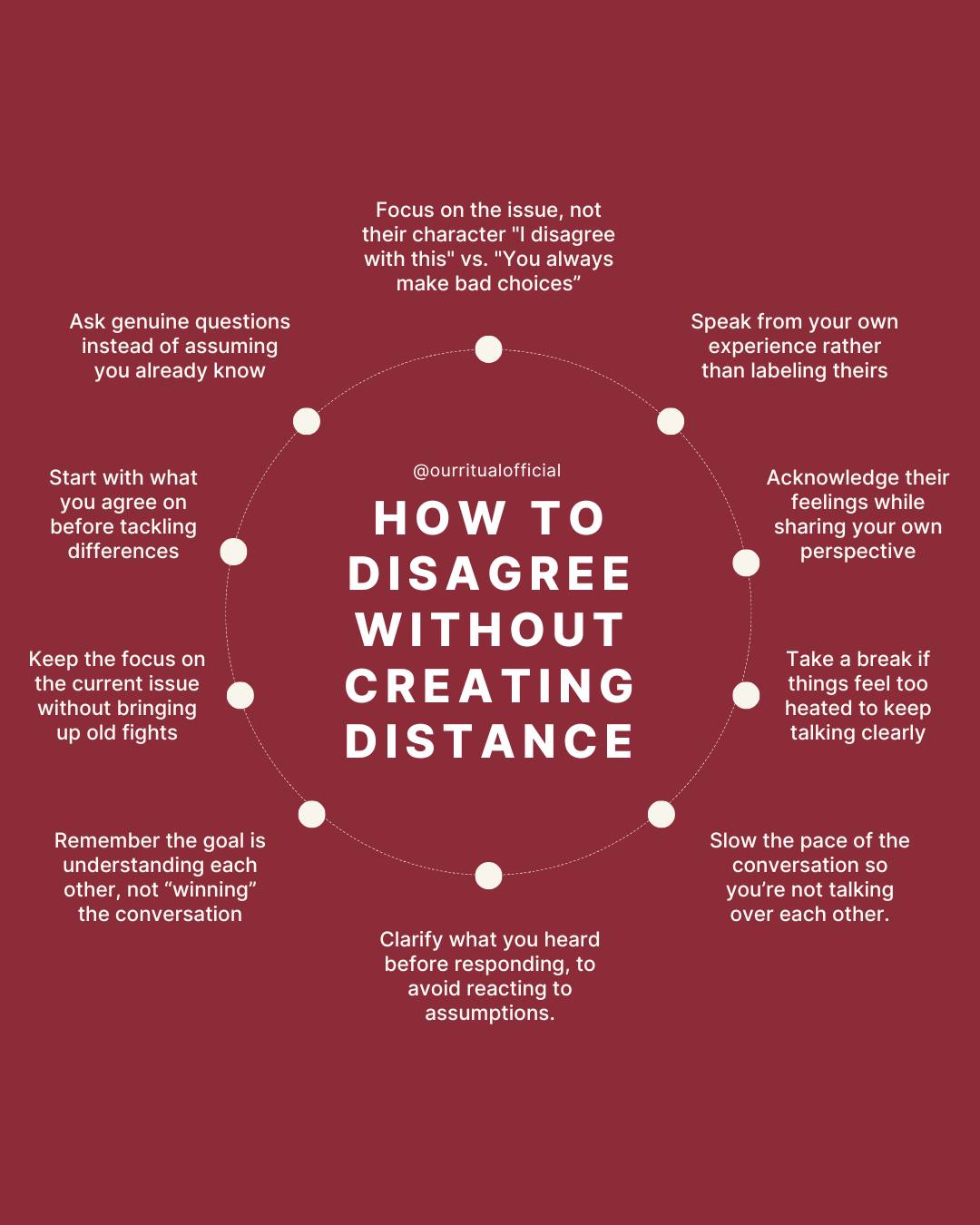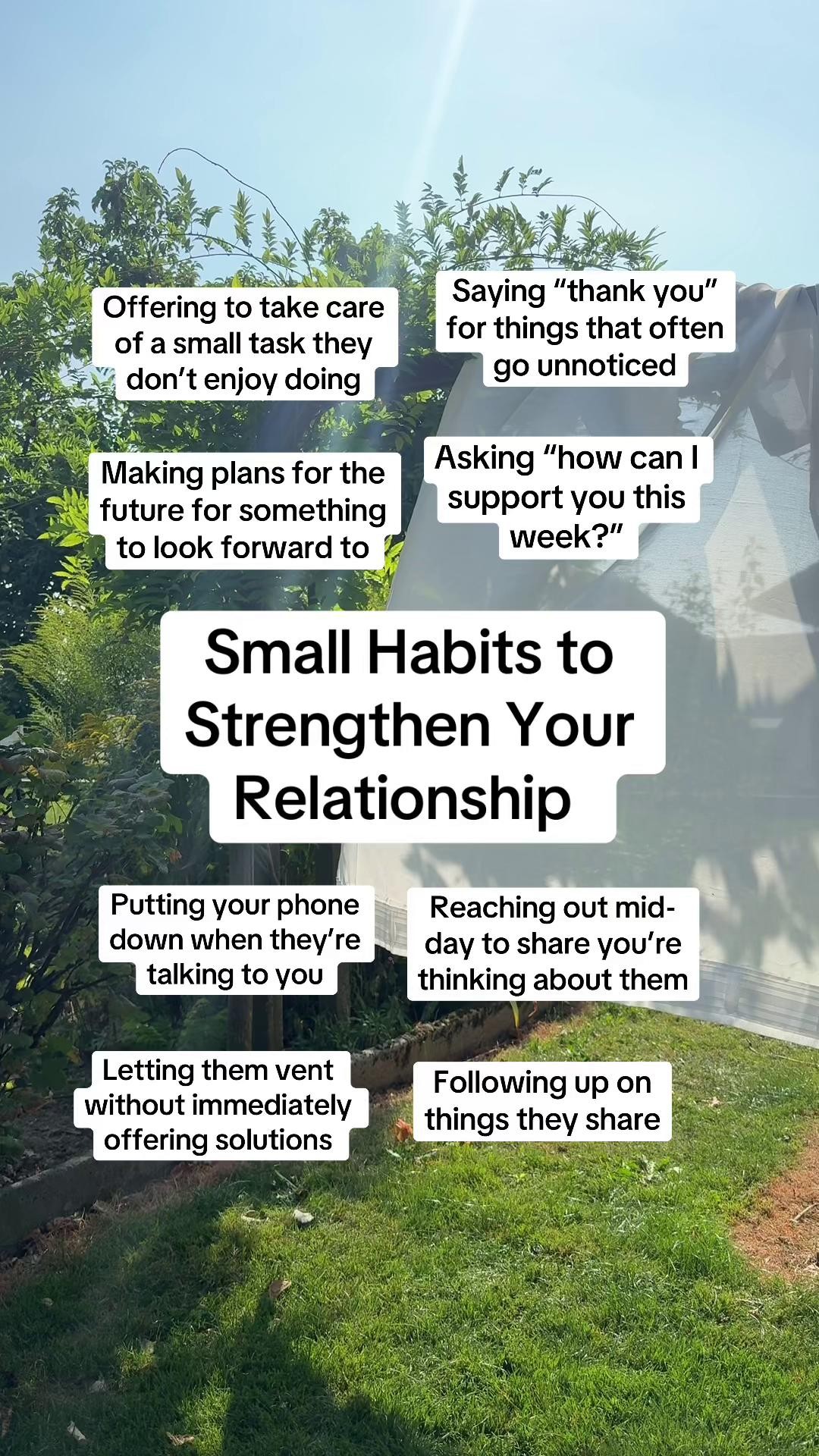ouples often come to us skeptical about the possibility of change in their relationships. When people reach an impasse, they tend to believe they have to give up a significant part of themselves or give up on what’s meaningful to them, in order to avoid fighting. For example, it feels like the only way for you to keep the peace is by not insisting on your needs and boundaries. Sounds familiar?
Why Communication Matters in Relationships
Effective couples communication is about creating emotional safety, trust, and mutual understanding. When communication breaks down, couples often experience recurring misunderstandings, defensiveness, and emotional distance. These patterns can erode intimacy over time, even in relationships with strong foundations.
By improving your communication skills as a couple, you can create more space for vulnerability, navigate conflicts more calmly, and rebuild connection where it may have felt lost. This work matters because communication isn’t just something that happens between you — it shapes how safe, seen, and supported you both feel in the relationship.
Key Relationship Communication Skills to Master
“I” Statements — Express Feelings Without Blame
“I” statements are a foundational communication skill that helps shift conversations from blame to vulnerability. They create space for your emotions to be heard without triggering your partner’s defenses. We’ll go deeper into how they work and how to use them effectively in the sections below.
Active Listening — Fully Present, Reflective Feedback
Active listening means giving your partner your full attention, without interrupting, mentally rehearsing your reply, or jumping to conclusions. It means listening not only for the facts, but also for the feelings behind them, and reflecting back what you’ve understood.
For example: “So you’re feeling overwhelmed at work, and it’s hard to be present when you get home?”
When couples practice this regularly, it leads to better understanding, fewer assumptions, and more connected conversations.
Emotional Intelligence — Self-Regulation and Empathy to Handle Conflicts Calmly
Emotional intelligence is the ability to recognize your own emotions and manage them in real-time, especially during stressful periods. It’s what allows you to pause instead of react, speak with intention, and stay open to your partner’s perspective.
It also includes empathy: the willingness to try and understand your partner’s emotional experience, even when you disagree. The more emotionally intelligent a couple becomes, the more resilient and connected they feel, even in hard moments.
What Are I-Statements?
I-statements are a way to communicate and express our feelings to our partners in a way that can be heard, without triggering defensiveness. When this happens, empathy is possible and closeness is re-established.
For example: instead of saying, “You think I have to be a professional chef to be good enough for you!”, try: “I feel worthless when I hear that the food I made is not liked.” That’s it. Simple, right? But just because something is simple doesn’t mean it’s easy.
To use I-statements effectively, we have to let go of a favorite defense mechanism: blame. Instead of pointing out our partner’s mistakes and attacking them, we need to expose a sensitive piece of ourselves. That can feel vulnerable, but it’s one of the fastest ways to return to emotional safety and reconnection.
So How Do We Use I-Statements? Here Are a Few Helpful Tips:
Timing matters: Opening up to someone requires emotional resources from both sides, so do it when you’re both calm, regulated, and ready for a conversation. Don’t initiate it when one of you is tired, hungry, drained, busy, or distracted.
Check in with yourself first: Before the conversation, ask yourself, “What am I feeling?” You might be surprised at how unclear that is. If you’re unsure, here’s a list of feelings to help you get started.
Avoid mind reading: Assuming our partner’s intentions may feel protective in the moment, but it often leads to distance and disconnection. Stay curious instead of convinced.
Don’t weaponize “I feel”: Saying “I feel like you never listen to me” isn’t an I-statement — it’s still a judgment. Instead, try: “I feel unheard” or “I feel invisible.” Stick to your emotion, not their behavior.
Couples Therapy Communication Techniques You Can Try at Home
Reflective Listening — Restating Your Partner’s Message to Ensure Understanding
This technique is a cornerstone of effective couples therapy — and one of the most accessible. Reflective listening simply means repeating back what you heard your partner say, not as a parrot, but as a mirror.
For example: “So you're feeling overwhelmed because you didn’t feel supported this week — is that right?”
That small act of validation can de-escalate tension, prevent misunderstandings, and help both people feel heard and seen. It shows you’re really trying to understand, not just waiting to respond.
DBT-Inspired Tools, Like DEAR MAN, for Setting Requests Calmly
From Dialectical Behavior Therapy (DBT), the DEAR MAN framework is a simple, structured way to make requests in a relationship without aggression or avoidance.
It walks you through Describing the situation, Expressing how you feel, Asserting what you need, and Reinforcing the benefits of cooperation. When used well, it helps reduce conflict and creates a calm, non-defensive space for setting boundaries or asking for change — especially around recurring frustrations.
Structured Talks, Such as the 40–20–40 Model and Pause/Resume Methods
When things feel too overwhelming to talk through naturally, structured conversations can offer a lifeline. The 40–20–40 model gives each partner 40% of the time to speak, with a neutral 20% reflection or pause in the middle.It creates space to speak without interruption and encourages deeper listening.
Another great technique is the “pause and resume” method: giving each other explicit permission to take a break in the heat of the moment — and then come back with calmer energy. These tools help prevent spirals and foster emotional safety, even during hard conversations.
Final Thoughts
Communication is the heartbeat of any strong relationship, but it’s not always easy to get it right. These are skills, not personality traits. That means they can be learned, practiced, and strengthened over time.
Whether you’re trying out I-statements for the first time, working on listening with more presence, or exploring new tools from couples therapy, the smallest shifts can create powerful change. You don’t have to do it perfectly — you just have to stay willing to try.
And if you're ready for more guidance, OurRitual is here to help. Our relationship tools and expert support can walk you through these skills step by step.
FAQs
What are the most common communication issues in relationships?
Some of the most common challenges include defensiveness, misinterpretation, emotional withdrawal, and poor listening. Many couples also fall into patterns of blame or assumption, which can erode trust and make it harder to feel emotionally safe during conflict.
How to improve communication skills between couples?
Start by practicing foundational tools like I-statements and active listening. Make space for regular check-ins, slow down heated conversations with pauses, and aim to express—not suppress—your emotional experience. Small, consistent improvements in how you speak and listen can create big changes over time.
How can I improve relationship communication using "I" statements?
Begin your sentence with “I feel…” and follow it with a clear emotion, not a judgment. Avoid phrasing like “I feel like you…” which still places blame. Instead, try: “I feel hurt when plans change suddenly.” This makes your experience shareable instead of confrontational.
What are active listening skills, and why are they vital for couples?
Active listening means being fully present, setting aside your own agenda, and reflecting back what you hear. It helps reduce misunderstandings and ensures both partners feel seen and validated. Over time, it builds deeper emotional intimacy and trust.
How do daily check-ins boost mutual understanding?
Short, intentional check-ins help couples stay emotionally connected, even during busy or stressful seasons. They prevent resentment from building, offer space to express needs, and make it easier to spot patterns or misalignments before they escalate.
How do I handle emotional triggers without escalating conflict?
The first step is awareness. Notice when you’re becoming reactive, and give yourself permission to pause. Naming your emotion out loud: “I’m feeling overwhelmed,” can create space between the trigger and your response. Returning to the conversation when you're calm can help prevent further hurt.
How can nonverbal communication improve how we communicate?
Facial expressions, tone of voice, eye contact, and body posture all send powerful signals. When these are aligned with your words, they can reinforce safety, empathy, and care. But when mismatched—like saying “I’m fine” with a closed-off posture—they can create confusion. Paying attention to nonverbal cues helps deepen understanding and emotional connection.

























